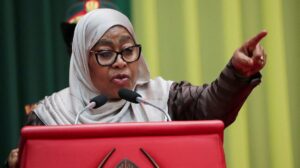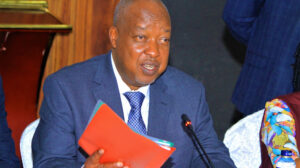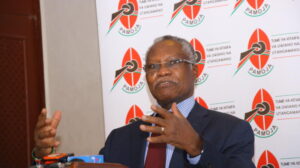Adil Arshed Khawaja, a prominent figure in Kenya’s business and financial sectors, has gained attention due to his involvement in high-profile deals, including some connected to President William Ruto’s administration.
As the chairman of the Kenya Commercial Bank (KCB) board, Khawaja has become a key player in Kenya’s evolving economic space.
One of the most contentious deals linked to his sphere of influence is the management concession of Jomo Kenyatta International Airport (JKIA) to the Adani Group, an Indian multinational conglomerate.
The JKIA concession agreement has raised eyebrows among critics, who argue that the deal lacks transparency and might not adhere to Kenya’s constitutional principles of sustainable and equitable development.
Many question why a critical national infrastructure such as JKIA, which serves as a key hub for international and regional air traffic, is being placed under foreign management, especially one like the Adani Group, which has been embroiled in multiple controversies globally.
These concerns have led to an intense debate over the prudence of the deal, both in terms of its immediate impact and the long-term economic implications for Kenya.
Khawaja’s role as a key business figure in Kenya, combined with his position at KCB, places him indirectly in the middle of this debate.
Although there is no direct evidence suggesting that he was involved in negotiating the terms of the JKIA deal, his influential position in the country’s financial circles and his close ties to the Ruto administration naturally tie him to discussions surrounding major national infrastructure projects.
Given KCB’s centrality to financial operations under Ruto’s government, Khawaja’s leadership adds weight to concerns about the intersection of business interests, politics, and foreign investments in Kenya.
The decision to grant Adani a 30-year concession for managing JKIA has been met with widespread skepticism.
Critics argue that the deal is not only opaque but also potentially harmful to Kenya’s financial future.
Some have expressed concerns that this concession could disproportionately benefit foreign entities at the expense of Kenya’s own economic sovereignty.
The fears are particularly pronounced given the big financial burden the deal could place on future generations, with some arguing that it compromises Kenya’s ability to manage its own critical infrastructure.
In light of President Ruto’s “bottom-up” economic model, which emphasizes economic growth from the grassroots level, the JKIA deal has come under further scrutiny.
Ruto’s administration has been called to demonstrate how such deals, which appear to favor large foreign corporations, align with his promise to uplift the common Kenyan citizen.
The lack of clarity surrounding the terms of the concession and the exclusion of public participation has led to widespread calls for more transparency and accountability.
The public discourse surrounding Khawaja, the JKIA deal, and the Adani Group highlights larger questions about Kenya’s economic trajectory.
As foreign entities like Adani become more involved in key national projects, concerns about national sovereignty, economic sustainability, and the fair distribution of economic benefits continue to surface.
Figures like Khawaja, who hold influential positions in both the business and political spheres, are increasingly being on the spot for their roles in facilitating these large-scale projects.
Ultimately, the growing connection between Khawaja, President Ruto’s government, and deals like the Adani-JKIA concession illustrates the complex intersection of business, politics, and international interests in shaping Kenya’s future.
Kenyans will continue to watch closely, eager to understand how such deals will affect the country’s economic stability and growth in the long term.





















Add Comment